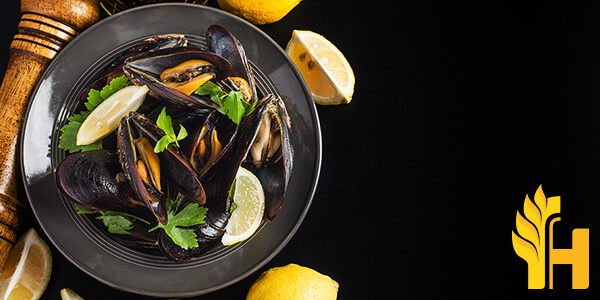Mussel price

Where to buy and sell Mussel, lowest (cheapest) and highest price.
check offers buy sell MusselToday price for MusselMussel wholesale prices 2022
The Current commodity price of Mussel per kg, pound in the world in the global markets
Mussel
The species name "edulis" means "edible" in Latin. Mussels are eaten by many humans, but generally only when cooked. Mussels can be prepared in several ways, often varying by species and region. They may be packed into a small tin (like sardines) and sold as canned food; smoked; steamed; roasted over an open fire, barbequed; boiled in soup, stew, chowder, or stock; or cooked on beaches (in various world areas) by building a small fire on the sand and inserting mussels into the sand above the fire. Mussels are commonly used in coastal cuisine as an ingredient in various cuisines, often in combination with other seafood. They can also be made into hot or cold sauces for dipping. Mussels are economically important, widely consumed species, especially in northwestern Europe. They are also harvested or cultivated by aquaculture in North America, specifically the Pacific Northwest and the Atlantic northeast. The mussel's external shell is composed of "valves", that are joined together by a ligament, which usually consists of three separate components. In addition to this ligament, mussels have several soft tissues, which are used in locomotion. Mussel shells carry out several functions, including support for soft tissues, protection from predators, and protection against parasites. Mussels also rely on the shell to provide an attachment substrate for muscles and other biological structures such as oysters or bacteria. The shell has three layers: the epicone, mesocone, and ectone. Most bivalves are filter feeders: they sit on the seabed and use a "current of water" to obtain food particles from the passing seawater. Common examples include suspension-feeding, infaunal feeding, and woodlice mud-mobilizing. However, the blue mussel is an exception: it has evolved simple eyes, known as ocelli, that can detect light and orient the animal accordingly. These photoreceptor cells are sensitive to light intensity and polarization, which helps the animal to distinguish between feeding in daylight or at night (known as scotophase). Mussels do not have a brain or any centralized nervous system, and their coordination comes entirely from a distributed network of nerves that run along the mussel's tissues. Mussels have three hearts: one in each adductor muscle and another in the circulatory system. Each heart consists of two chambers, an atrium to receive blood from the gills, and a ventricle to pump it into the aorta, from which it moves through the rest of the body. Mussels are capable of switching between breathing by using primitive lungs, using gills, and breath-holding. They are also capable of adjusting their blood chemistry in order to maintain optimal oxygen levels in different conditions; particularly low oxygen levels during the night. Mussels typically reach sexual maturity between one and three years of age, but some species take as long as five years to mature fully. Once they reach adulthood, mussels continue to grow; shells increase in size by about 1% per year on average for most species.Global mussel production
The global production of mussels has increased significantly in recent years. In 2014, the world's mussel production was estimated at 990,000 metric tons, an increase of nearly 20% from 2013. The majority of the world's mussel production comes from China, which produced an estimated 650,000 metric tons in 2014. Other major mussel-producing countries include Chile, Japan, the Philippines, and India. Mussels are a popular seafood choice because they are relatively inexpensive and easy to prepare. They can be cooked in a variety of ways, including steaming, boiling, grilling, and baking. Mussels are also a good source of protein, iron, and other nutrients. As global demand for mussels continues to grow, it is important to ensure that mussel production is sustainable. One way to do this is by using more efficient farming techniques that reduce the impact on the environment. For example, some farmers are using floating cages that allow mussels to filter water more efficiently and produce less waste.Download our new
Husfarm App
Stay up to date with the current prieces of agricultural products all over the world.
Do you want to sell agricultural products?
Are you an Agricultural processor looking for high-quality products to buy?
Post an ad for FREE!
